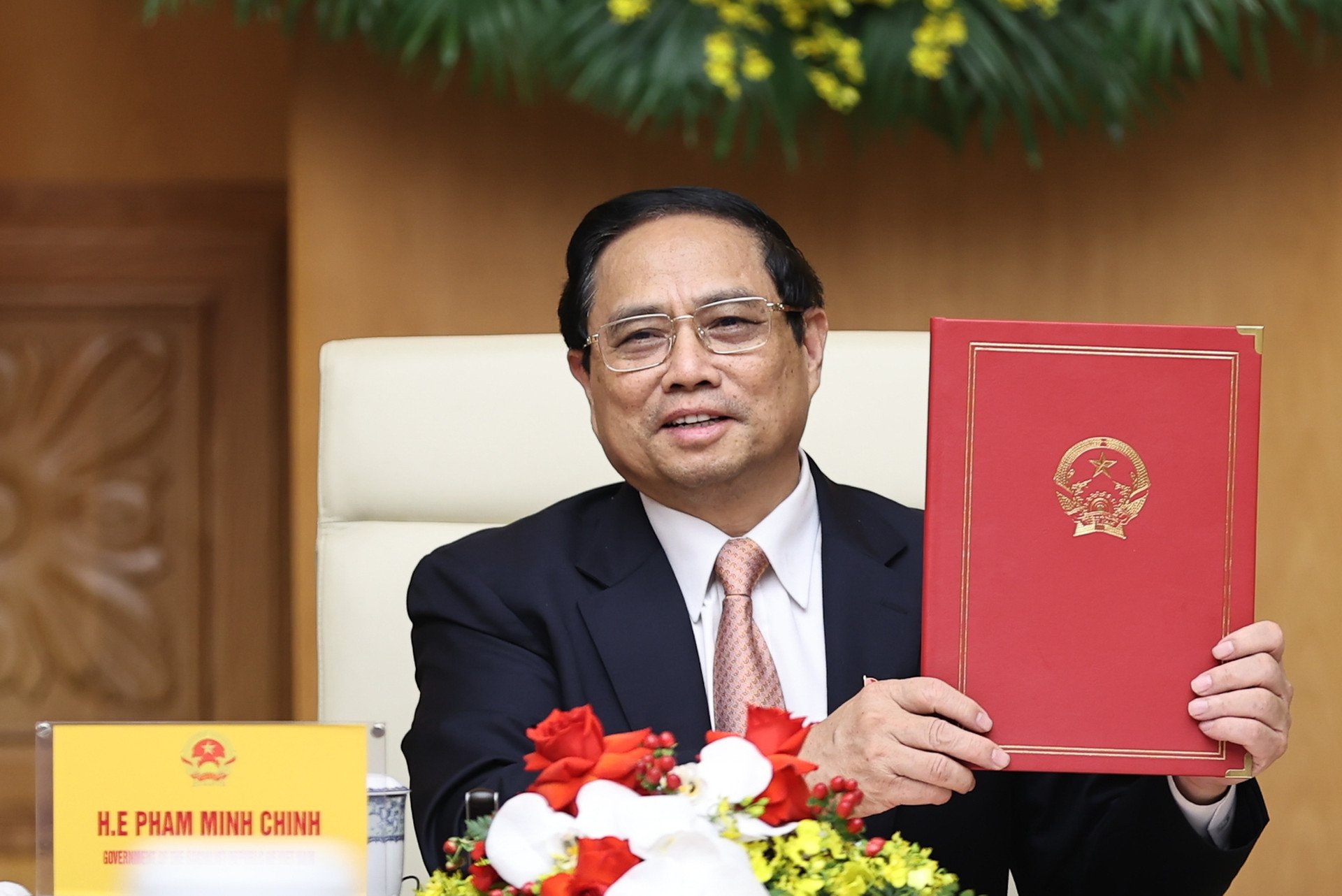 |
| Prime Minister Pham Minh Chinh held an online meeting with Danish Prime Minister Mette Frederiksen. (Source: VNA) |
Mr. Pham Minh Chinh, Prime Minister of the Socialist Republic of Vietnam and Ms. Mette Frederiksen, Prime Minister of the Kingdom of Denmark co-chaired online the Ceremony to announce the establishment of the Green Strategic Partnership between the Government of the Socialist Republic of Vietnam and the Government of Denmark (hereinafter referred to as “the two sides”) on November 1, 2023.
In addition, the two sides pledged to cooperate towards a strong and transparent international system based on international law with respect for human rights.
Within the framework of the 52nd anniversary of the establishment of bilateral relations between Vietnam and Denmark and in recognition of the strong and close cooperation between the two countries over the past 50 years, the two sides agreed to establish a Green Strategic Partnership.
In the context of the two countries strengthening bilateral cooperation in many fields and global issues of mutual concern, especially in the fields of sustainable development, climate change and green transformation, the Green Strategic Partnership is built on the basis of promoting and consolidating the Joint Statement on Comprehensive Partnership between the Government of the Socialist Republic of Vietnam and the Government of Denmark signed on September 19, 2013 and supplementing the Joint Statement on Establishing a Strategic Partnership between the Government of the Socialist Republic of Vietnam and the Government of Denmark in the fields of climate change, environment, energy and green growth signed on November 28, 2011.
The two sides have built a long-standing partnership in many areas. The Green Strategic Partnership will contribute to the realization of the efforts of the two governments to promote the green transition, raise global climate, environment and nature ambitions, as well as a socially just green transition to create green jobs and avoid increasing inequality.
The Green Strategic Partnership is built on a mutually beneficial agreement, aiming to promote political cooperation, expand economic relations towards green growth, create jobs and strengthen cooperation in addressing global challenges and providing solutions on green transition and climate change; with a focus on realizing the commitments of the Paris Agreement and the United Nations Sustainable Development Goals.
The need for green cooperation in the context of the Covid-19 pandemic
The two sides believe that the Covid-19 pandemic has shown that strong partnerships between partners on the green and climate agenda are more important than ever in supporting a green, sustainable and inclusive recovery.
Strengthening green dialogue
The two sides emphasized the importance of the green agenda and agreed to promote interaction, participation and collaboration of various stakeholders, including ministries, provincial and municipal authorities and other stakeholders in joint efforts to implement green agendas in Vietnam and Denmark.
The two sides agreed to enhance high-level policy dialogue on short-, medium- and long-term climate goals. They also agreed to enhance knowledge and best practice exchanges, experience sharing, enhance capacity building, technology transfer and promote concrete activities and initiatives on sustainable development, climate, green transition, environmental protection, promotion of science and technology development and protection of intellectual property rights, food and agriculture, health and life sciences, statistics, urban development, circular economy and green growth at relevant forums.
Climate, Environment and Energy
The two sides acknowledged and welcomed Vietnam's political determination in addressing the climate crisis, demonstrated by Prime Minister Pham Minh Chinh's commitment to a zero net emissions roadmap by 2050 at COP26 with support from the international community, as well as Vietnam's participation in alliances aimed at reducing greenhouse gas emissions through a global methane emissions reduction commitment and a joint commitment to phase out coal.
The two sides will promote cooperation in the field of greenhouse gas emission reduction to support Vietnam in developing a low-carbon economy, adapting to climate change and achieving the goal of net zero emissions by 2050, while promoting the development of a circular economy.
With the approved National Energy Master Plan, PDP8 and the Joint Energy Transition Partnership (JETP) with the International Partnership Group (IPG), Vietnam will take important steps to decarbonize the energy sector and increase the share of renewable energy. Both sides acknowledge the importance of energy security and affordable energy for Vietnamese society and people.
Since 2013, the two governments have strengthened their cooperation to support Vietnam’s transition to a low-carbon economy. A key component of this cooperation is capacity building in the area of long-term energy planning, with the publication of the Vietnam Energy Outlook reports. The reports present Vietnam’s future energy system up to 2050 through different scenarios. The scenarios in the reports show how Vietnam can achieve its peak and net zero emissions targets through increasing its Nationally Determined Contribution (NDC) targets, along with recommendations on large-scale renewable energy integration and energy efficiency.
The two sides welcomed the achievements of the Vietnam Energy Partnership Program Phase II and agreed to continue to maintain the Energy Partnership Program, including strengthening cooperation in areas such as energy system modeling, emission reduction scenarios, offshore wind development, renewable energy expansion and integration, and the development of energy efficiency standards and technologies. Strengthening the partnership in these areas will support Vietnam in gradually implementing the next policy steps to realize its goals of peak emissions, net zero emissions, and reducing dependence on fossil fuels, especially coal.
The two sides agreed to continue to cooperate in developing and publishing the Vietnam Energy Outlook Report. These reports can be considered an important technical foundation for designing policies to consolidate Vietnam's goal of achieving net zero emissions by 2050 and gradually phasing out coal.
Denmark shares its experience in establishing and operating carbon markets, and supports access to knowledge related to biomass-based carbon capture and storage (CCS) if deemed appropriate according to the recommendations in the Vietnam Energy Outlook Report to contribute to the goal of net zero emissions by 2050.
The two sides agreed to continue to enhance the sharing of expertise in designing and implementing policies and technical tools needed to realize the green energy transition. To this end, technical expert consultations, policy dialogues and exchanges of visits by delegations at all levels will be organized.
Trade and business cooperation
The two sides acknowledged that conditions for attracting foreign direct investment in Vietnam have improved, with Vietnam being among the top 20 economies attracting the most foreign direct investment in 2020. The Vietnam-EU Free Trade Agreement (EVFTA) marks an important milestone in trade relations between Vietnam and EU member states, creating a solid foundation for promoting trade in goods and services in green sectors between the two sides. The EVFTA has a dedicated chapter on trade and sustainable development, paving the way for closer cooperation on environmental issues related to trade and investment.
Both sides will work to strengthen the capacity and participation of Vietnamese companies in contributing to sustainable value chains. The Danish government will support Danish companies in their efforts to source and promote more sustainable production in Vietnam, with special attention to labor rights and conditions.
The two sides look forward to strengthening economic, trade and investment cooperation, especially in the fields of onshore and offshore wind energy, energy efficiency solutions, food, agriculture, water and wastewater management, maritime solutions, technology and other areas of mutual interest, to support Vietnam’s green transition in many areas. Trade promotion activities and study tours are important tools in promoting cooperation.
The two sides look forward to further strengthening government-level dialogue on maritime issues, such as green shipping and green maritime solutions, and maintaining long-term dialogue and cooperation on reducing greenhouse gas emissions in the maritime sector. The cooperation could include meetings, contacts, webinars between Vietnamese and Danish companies and other organizations and units in the maritime sector to attract the participation of the business sector in this field.
Urbanization, industrialization, strong economic growth and climate change are increasingly having a significant impact on Vietnam’s environment. With decades of experience in providing technology-driven solutions and green and sustainable infrastructure, Danish companies are keen to strengthen their cooperation with Vietnamese partners, particularly in the areas of urban development, food and agriculture, healthcare and life sciences. To promote and strengthen cooperation in technology development, Danish government agencies can facilitate through optimal framework conditions to help companies develop in this area.
Urban development and sustainable and livable cities
The two sides look forward to strengthening cooperation and partnership between experts and organizations from both countries in the field of urban development, building sustainable and livable cities. Forms of cooperation may include organizing workshops, sharing good practices and projects, and, where possible, organizing study tours to promote the exchange of knowledge and experience and enhance capacity building.
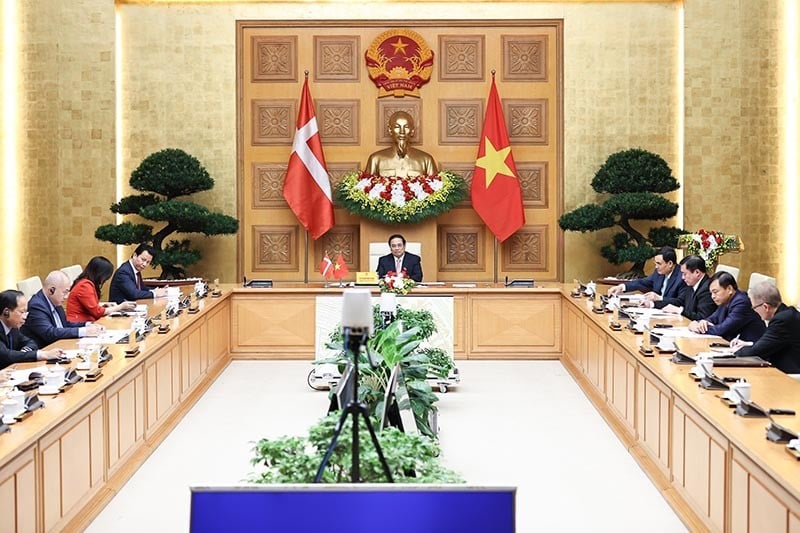 |
| Immediately after the talks, the two Prime Ministers adopted a Joint Statement on establishing the Vietnam-Denmark Green Strategic Partnership. (Source: VNA) |
Food, agriculture and aquaculture
The two sides look forward to strengthening cooperation in the field of food, agriculture and aquaculture with a key focus on sustainable and resource-efficient food and feed production as well as sustainable aquaculture production, including technologies and solutions for onshore and marine aquaculture production. The two sides agreed to share experience and expertise on environmental aspects of agricultural production, including sustainable resource management and reduction of production inputs.
The two sides agreed to expand cooperation in the agricultural sector in the future, aiming to develop agricultural and aquatic production to create higher profits, efficiency, safety and environmental friendliness. The two sides will explore the possibility of cooperation in research and technical support for agricultural production in the future.
The two sides agreed on the idea of public-private partnerships in preventing and combating food waste and loss to support more sustainable food production and resource-efficient supply chains.
Healthcare and life sciences
Reducing emissions of pollutants, such as heavy metals or particulate matter, plays an important role in improving air quality and reducing air pollution-related diseases. The two sides look forward to strengthening cooperation in the health sector and continuing to work together at the government level to promote primary health care in the areas of prevention, control, detection and treatment of non-communicable diseases.
National statistics support the implementation of sustainable development goals and green transition
Ensuring that adequate statistical data and analysis comply with internationally recognized standards and methodologies is essential for measurement and planning for sustainable development and green transition. The cooperation between the two parties will apply new technologies and methodologies to strengthen the available statistical data sources in Vietnam, including the National Environmental Accounts.
Promoting green transformation goals across all sectors
The two sides will work together to promote green transition and decarbonization in sectors and supply chains, including logistics and transport. The two sides will also cooperate to promote circular economy development initiatives.
The two sides will work to develop partnerships between relevant institutions and businesses in the two countries, with a particular focus on green and climate-friendly technologies. They recognise the importance of improving the legal framework conditions that support public and private investment in green energy and infrastructure, including access to international finance. To this end, strengthening and consolidating regulatory mechanisms can play an important role in promoting innovation and green technology development. They recognise that the legal framework on intellectual property rights is a key factor in promoting the green innovation transition that contributes to economic development and sustainable job creation.
The two sides recognized that concessional loans and cash grants from the Danida Sustainable Infrastructure Financing (DSIF) Programme are valuable and important financial instruments contributing to the improvement of sustainable infrastructure in Vietnam, through the exploitation and use of green and environmentally friendly knowledge and technology.
The two sides agreed to encourage PPP programs and projects to use Danish financial instruments including the DSIF Program and the Danish Export and Investment Fund (EIFO), in accordance with legal regulations and capital provision and use orientations of each side.
Multilateral cooperation
Furthermore, the two sides emphasized the importance of multilateral cooperation in addressing climate challenges and achieving the goals of the Paris Agreement and agreed to strengthen cooperation and coordination at multilateral fora. They welcomed initiatives to promote climate action such as the Partnership for Green Growth High-Level Forum and the 2030 Global Goals (P4G).
Initiatives such as P4G play a key role in advancing the United Nations Sustainable Development Goals by mobilizing the private sector, non-governmental organizations and public agencies in partnership for green and inclusive growth. As core members of P4G, the two sides are committed to working with the international community to support these initiatives and to make the best use of opportunities in the multilateral finance sector, including through the development banks and international and regional financial institutions.
Conclude
The two sides expressed their belief that the decision to establish a Green Strategic Partnership between the Government of the Socialist Republic of Vietnam and the Government of Denmark will open a new chapter in the friendly and cooperative relations between the two sides.
Ambitious targets and specific actions for each area will be identified and outlined in the existing Action Plan linked to the Joint Statement on Comprehensive Partnership between the two sides.
Source


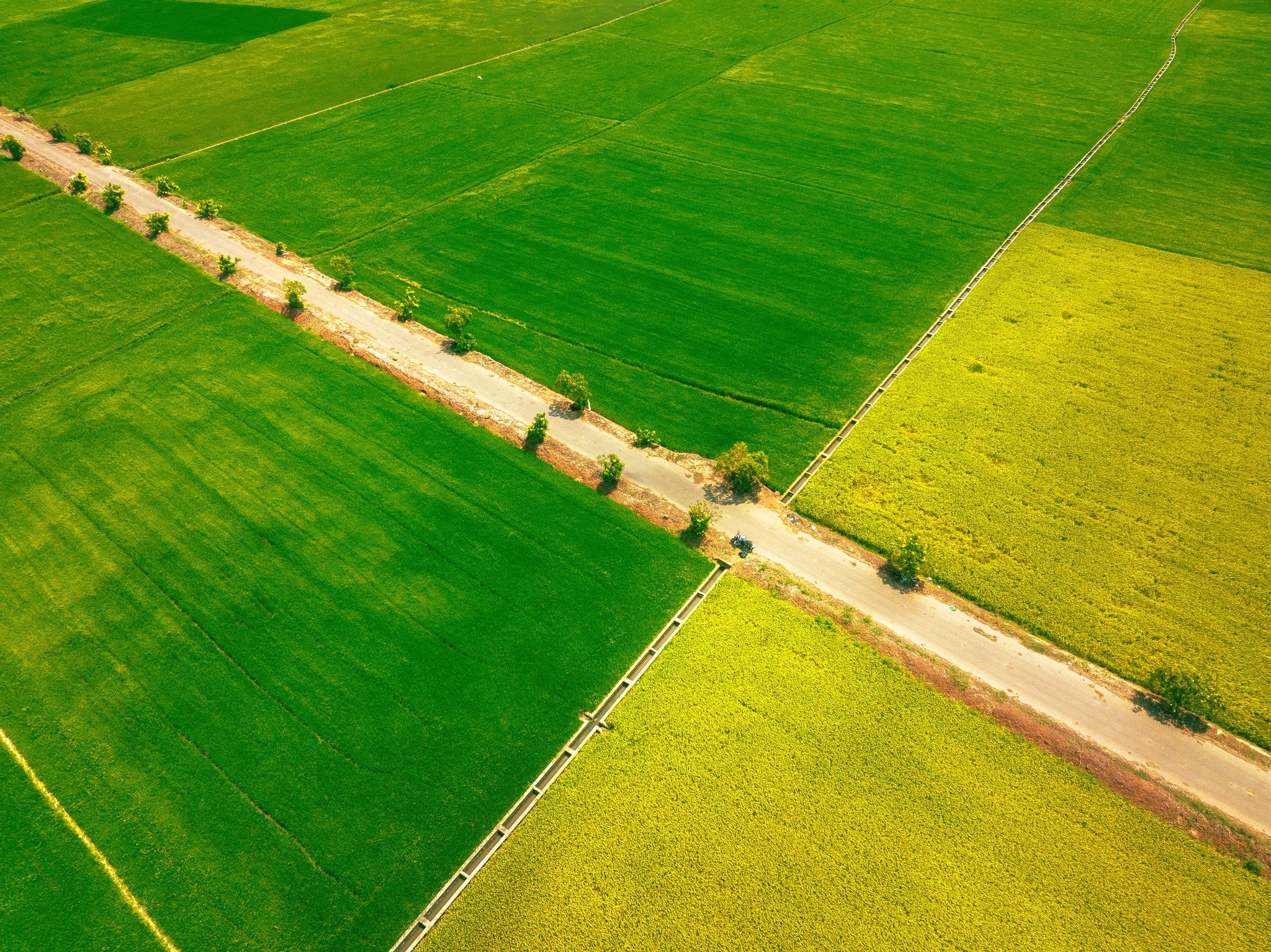
![[Photo] Schools and students approach digital transformation, building smart schools](https://vstatic.vietnam.vn/vietnam/resource/IMAGE/2025/3/29/9ede9f0df2d342bdbf555d36e753854f)
![[Photo] Unique Ao Dai Parade forming a map of Vietnam with more than 1,000 women participating](https://vstatic.vietnam.vn/vietnam/resource/IMAGE/2025/3/29/fbd695fa9d5f43b89800439215ad7c69)


![[Photo] Brazilian President visits Vietnam Military History Museum](https://vstatic.vietnam.vn/vietnam/resource/IMAGE/2025/3/29/723eb19195014084bcdfa365be166928)
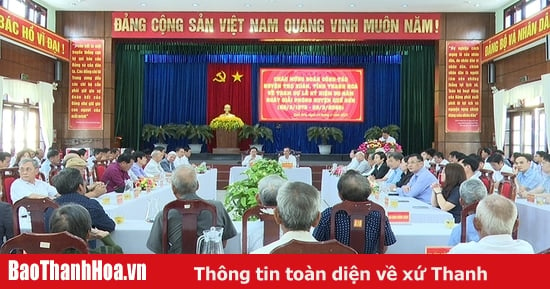

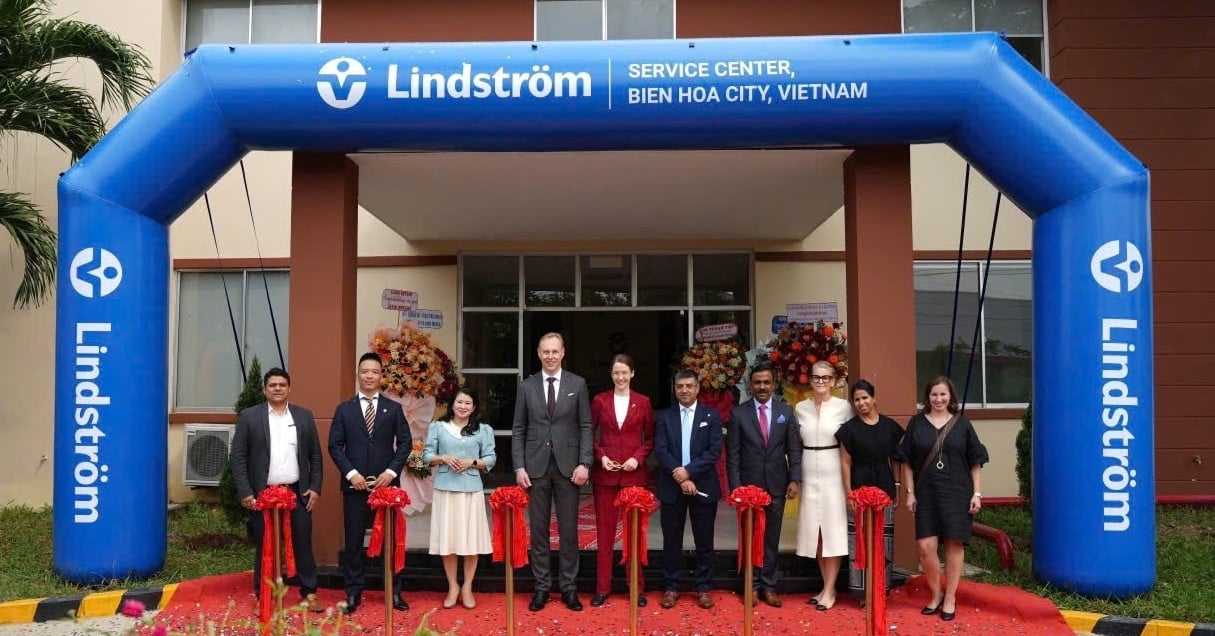

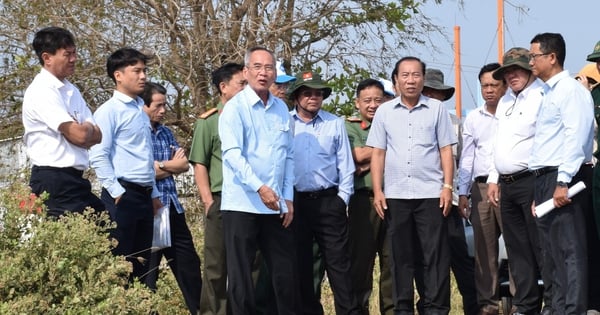

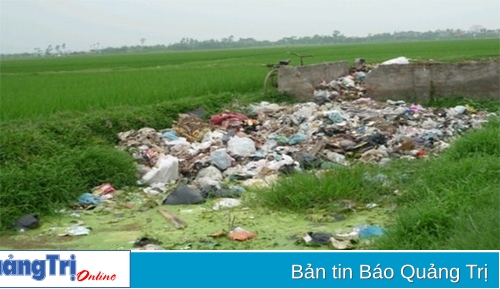
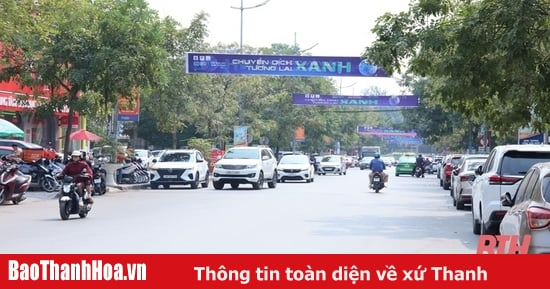
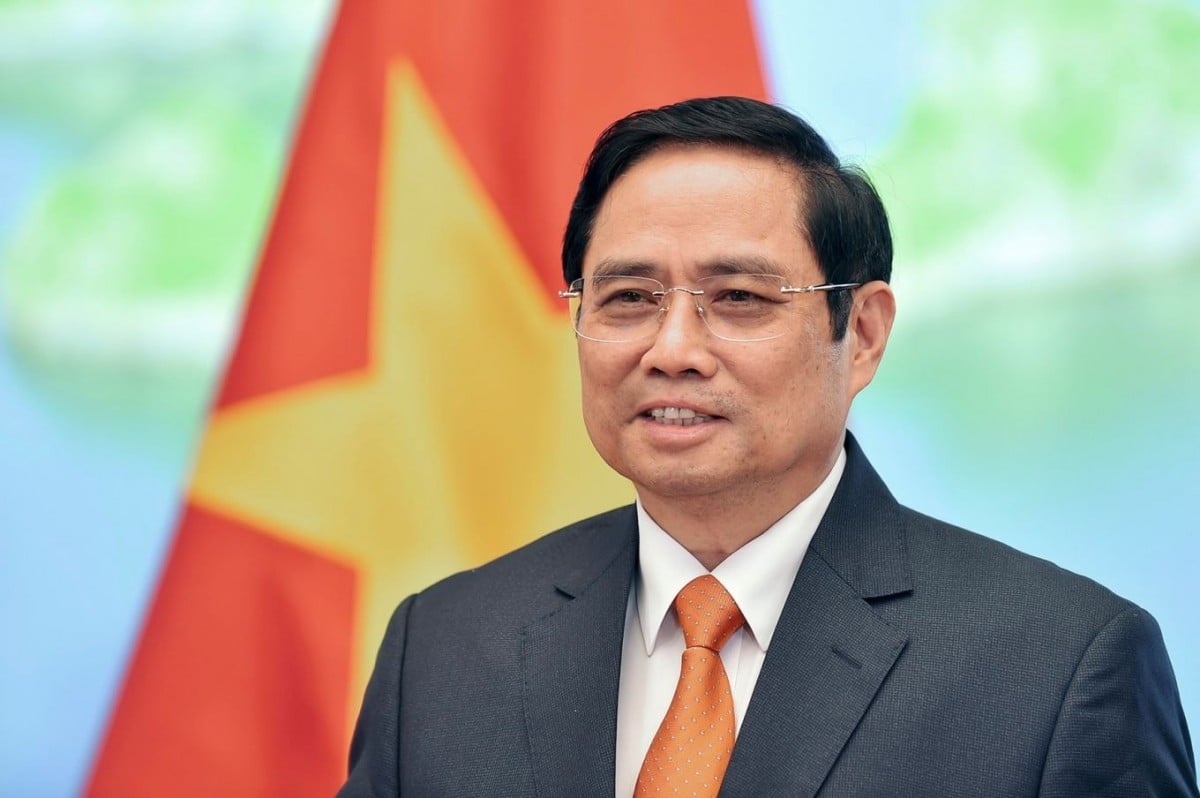

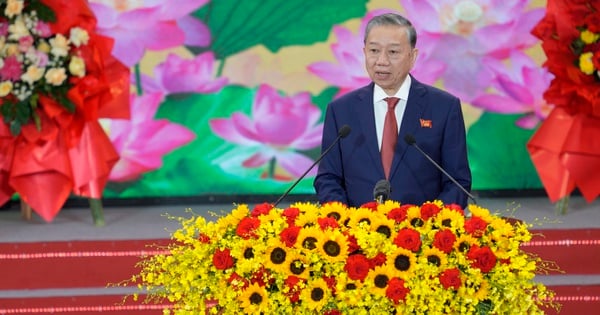
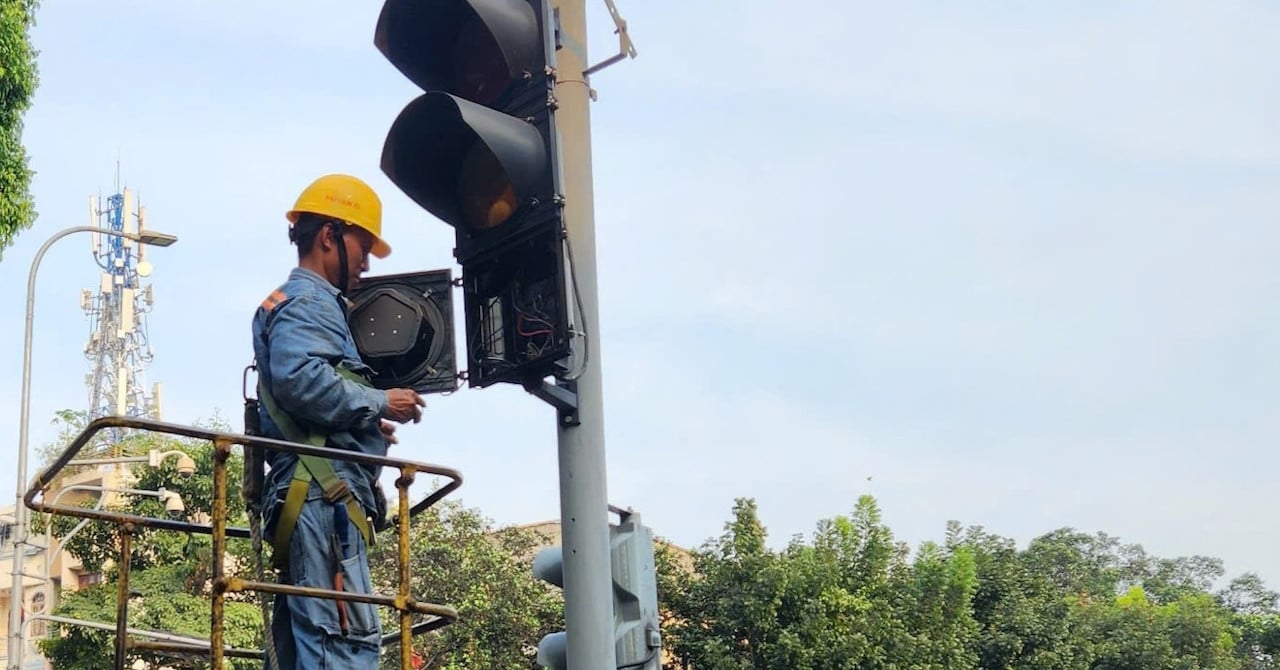
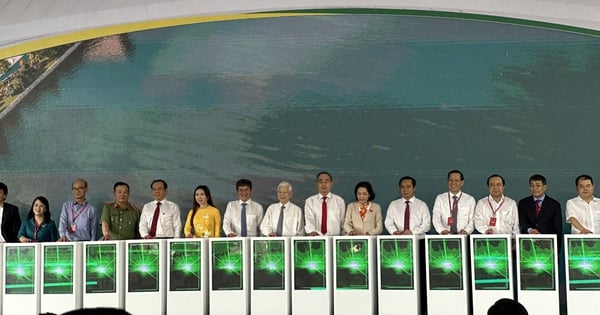
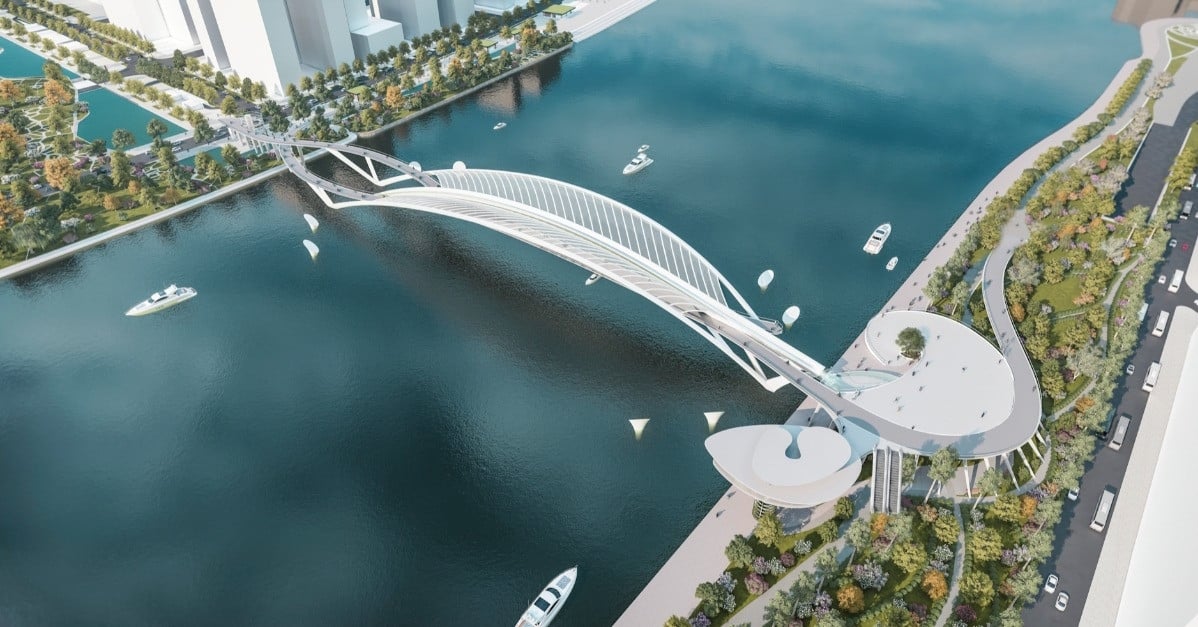
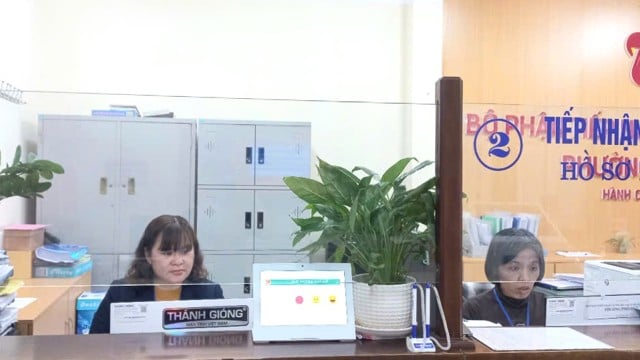





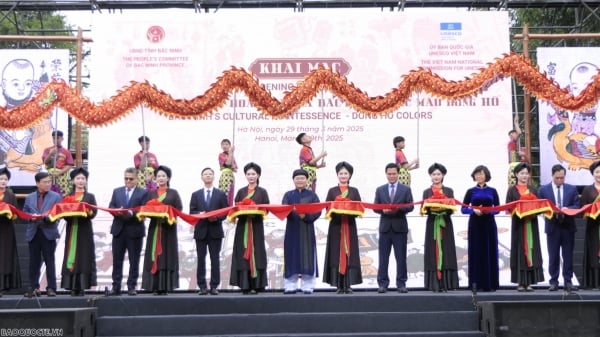




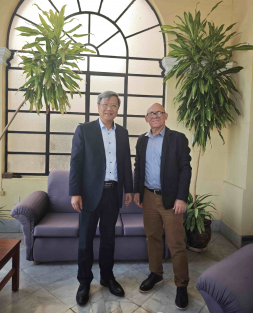
![[Photo] Training the spirit of a Navy soldier](https://vstatic.vietnam.vn/vietnam/resource/IMAGE/2025/3/29/51457838358049fb8676fe7122a92bfa)












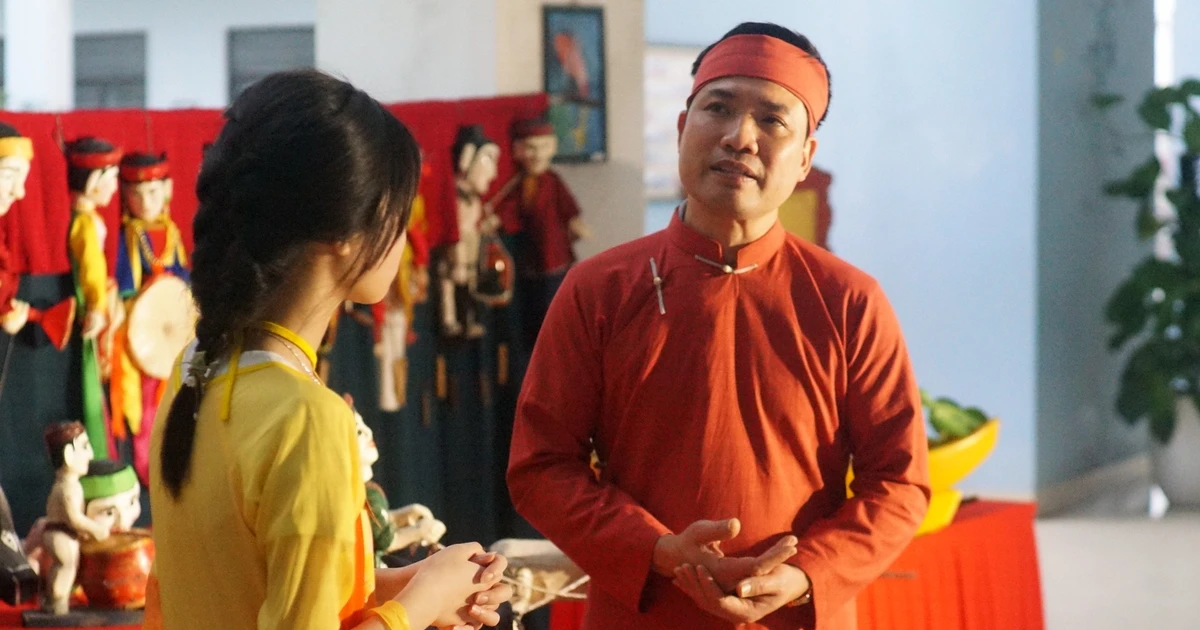
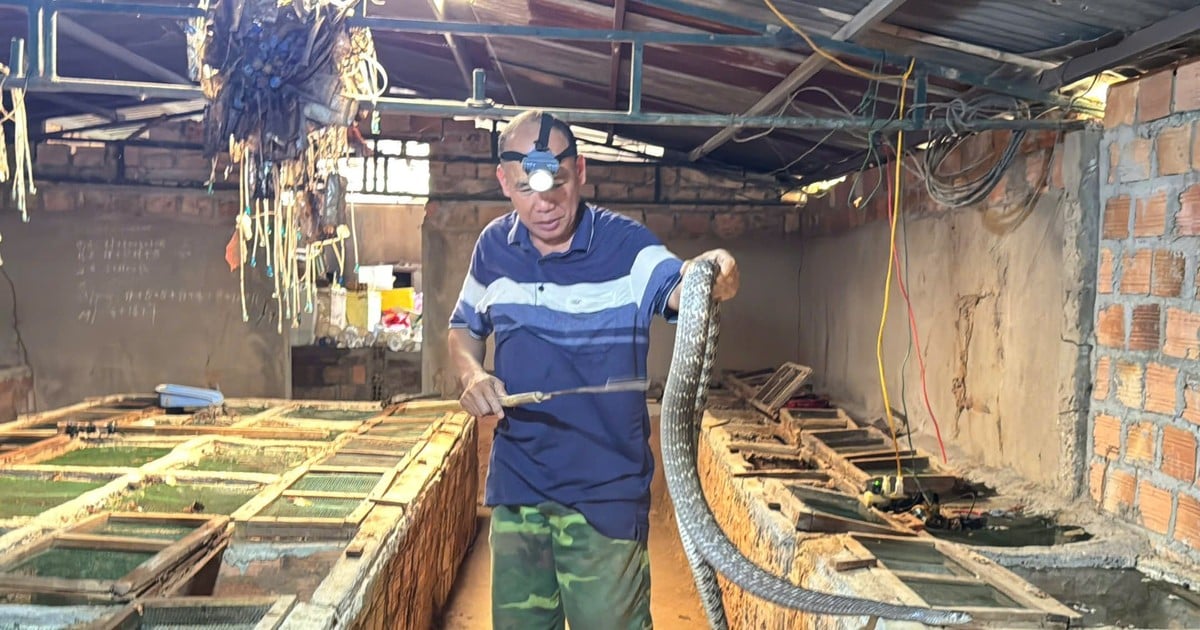
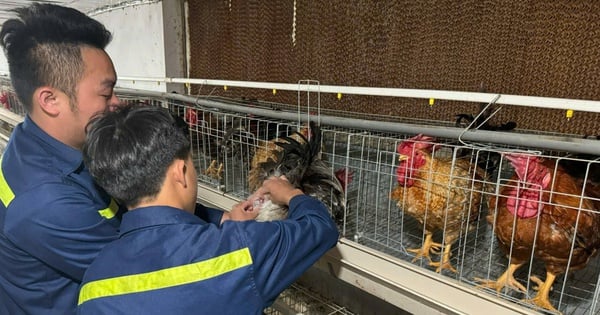

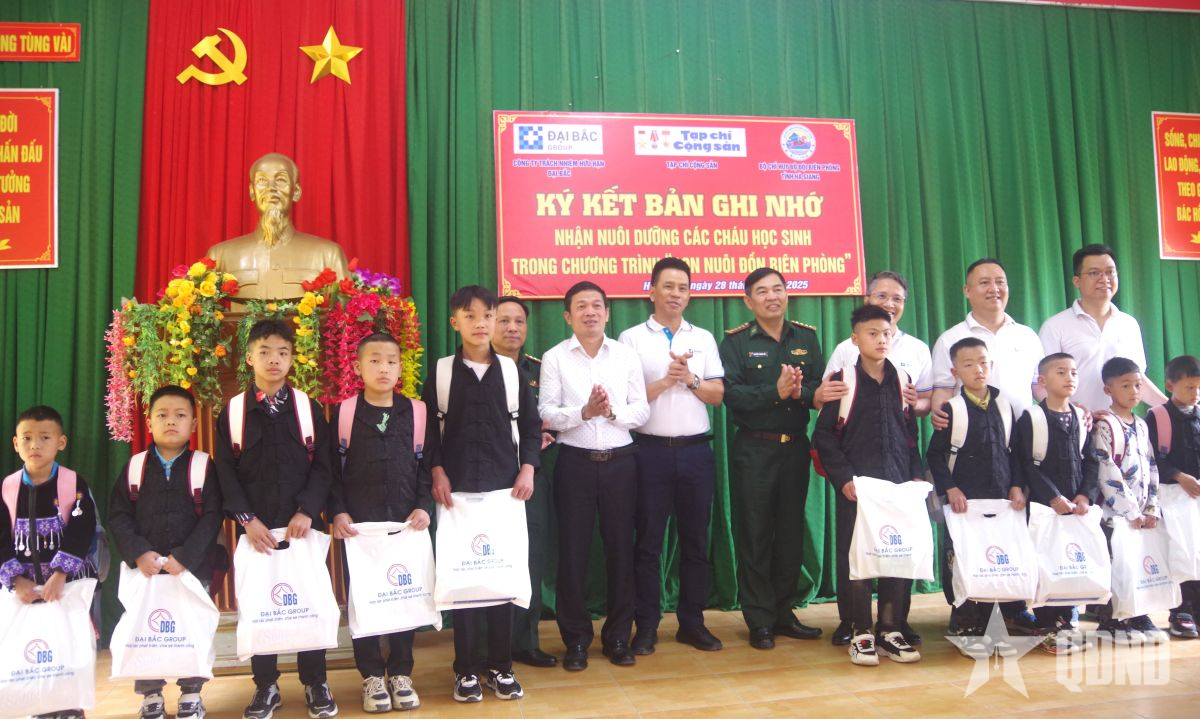












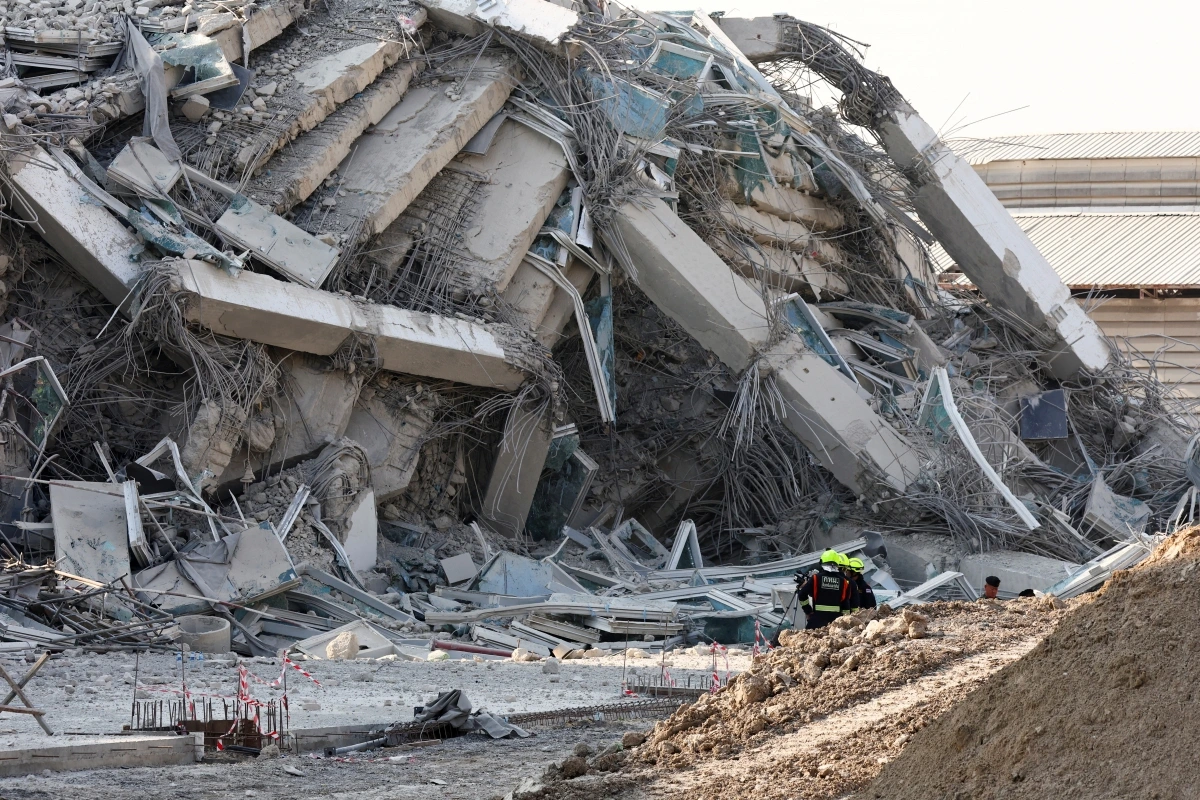
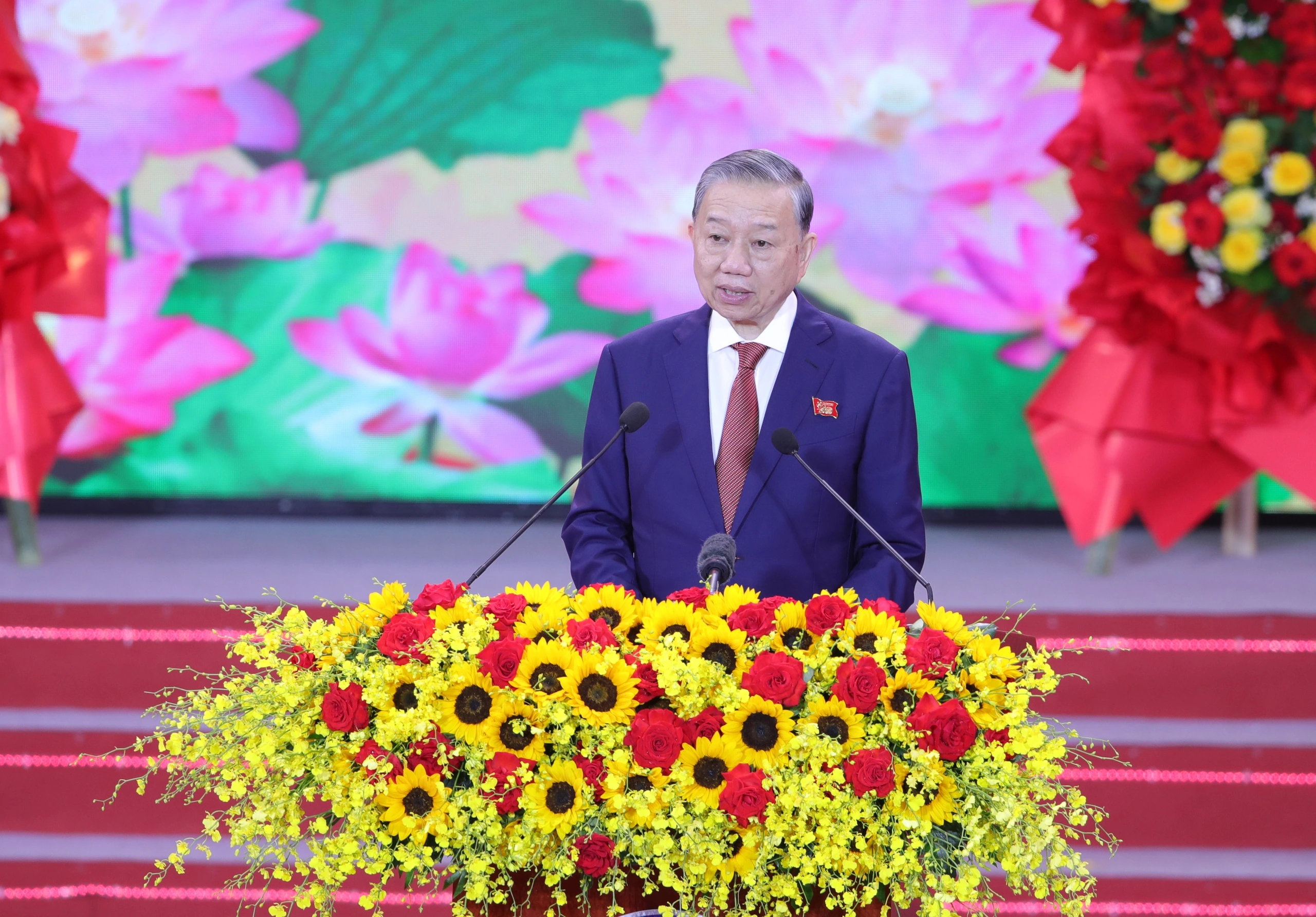



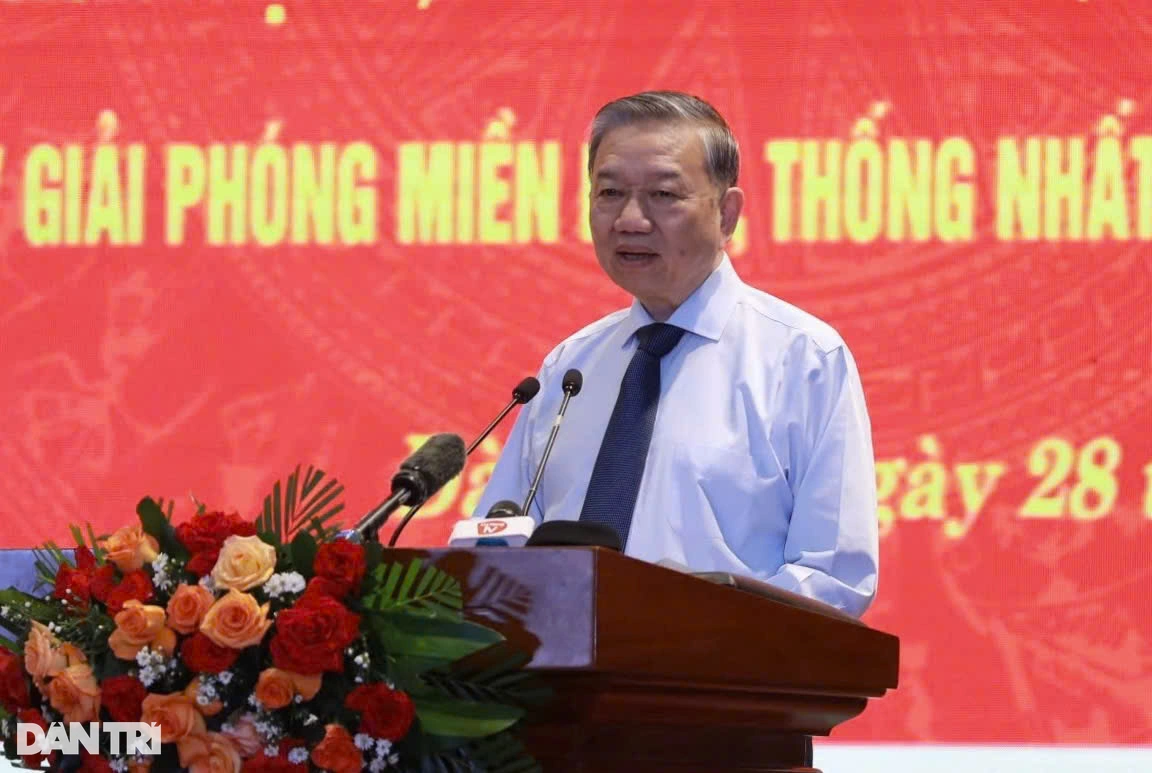
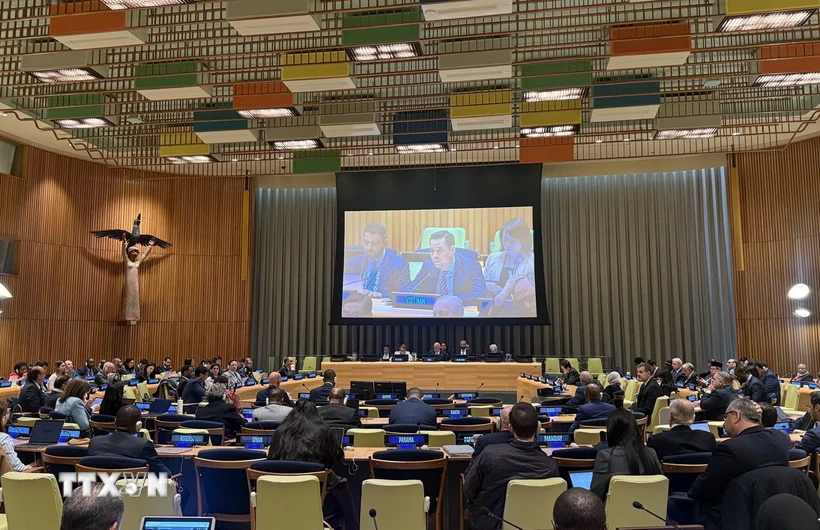
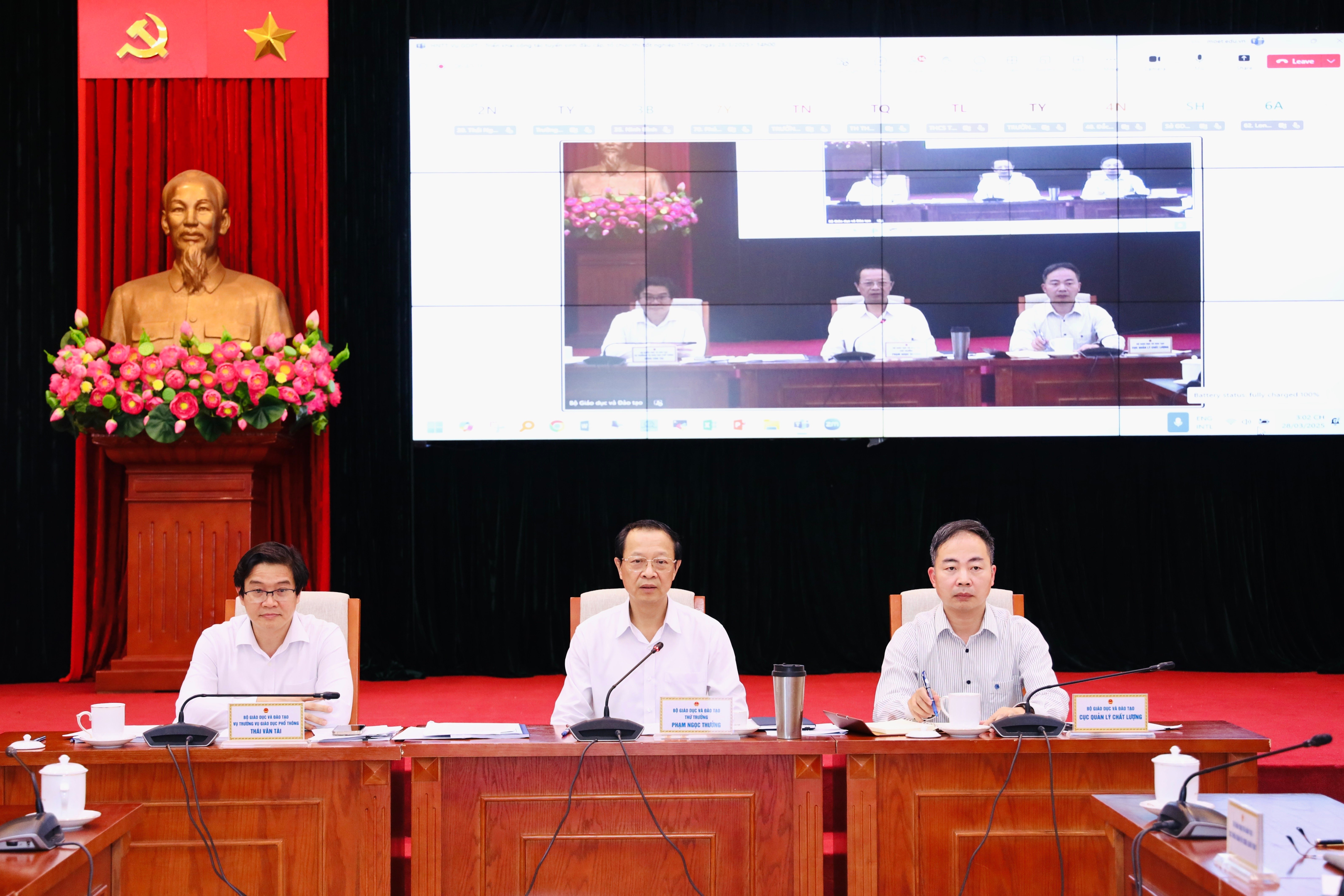

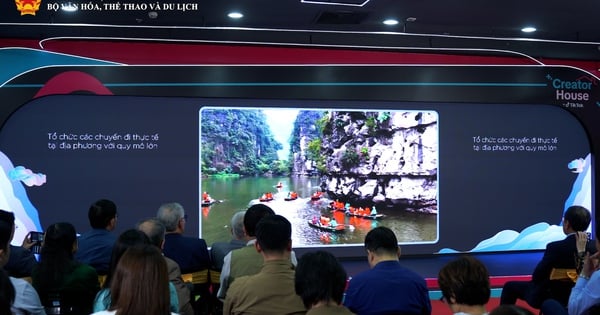

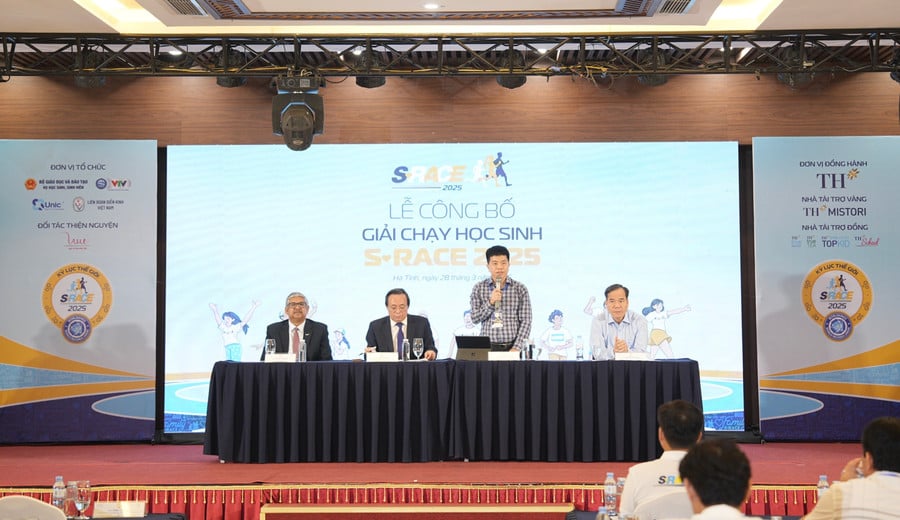
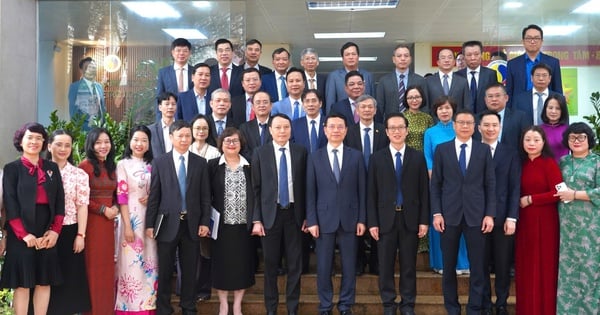


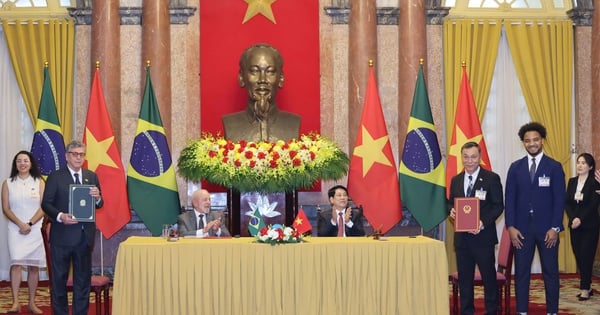


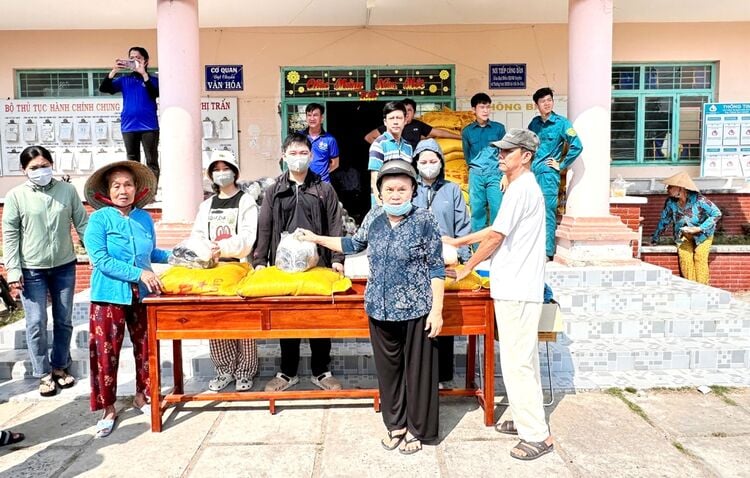
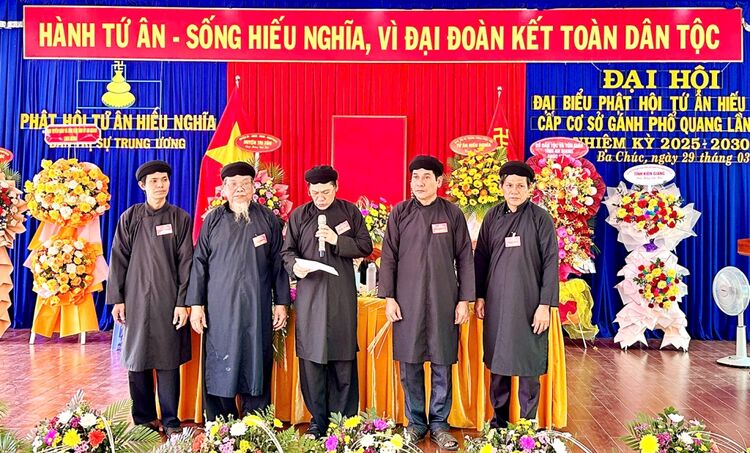


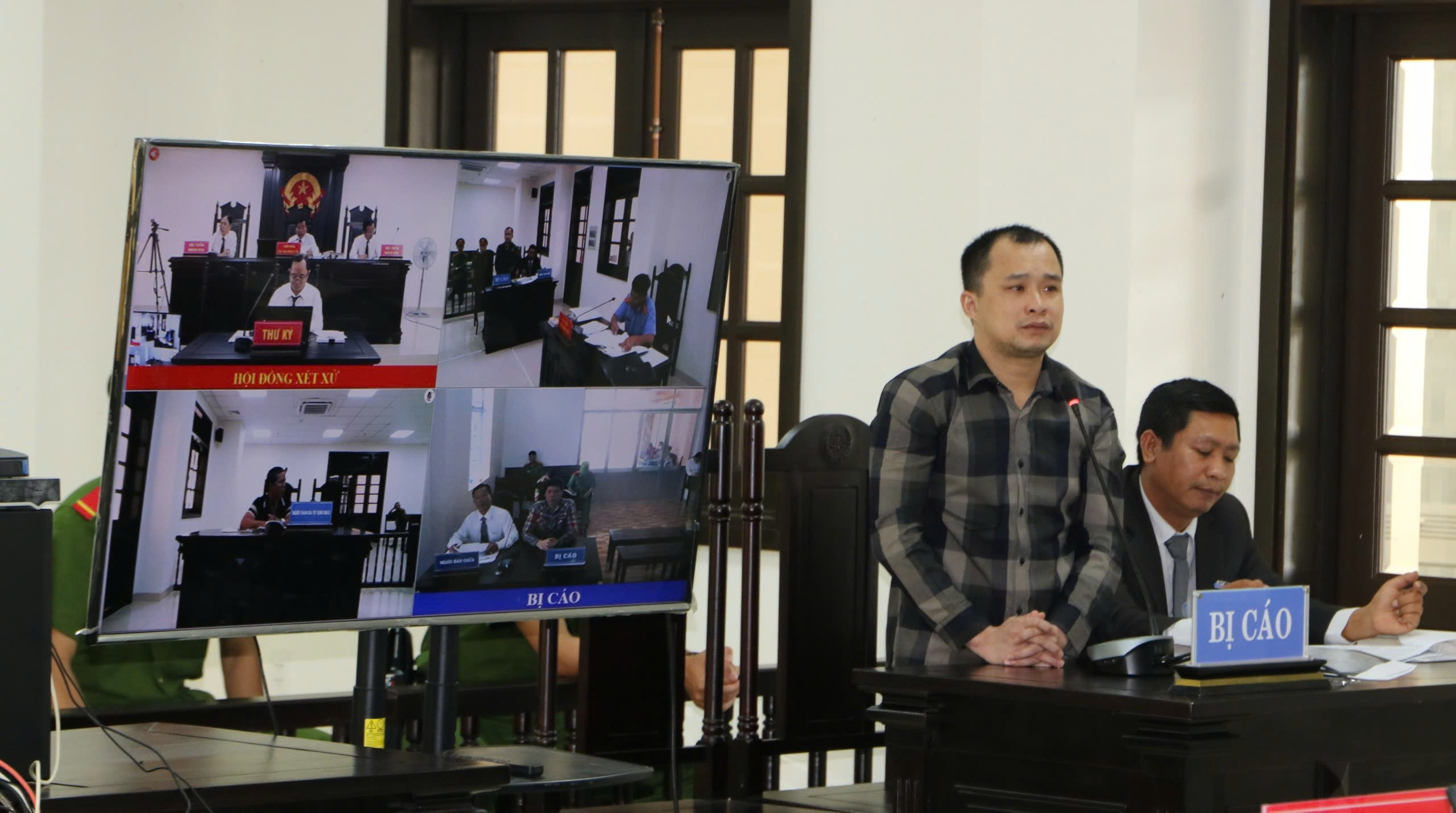
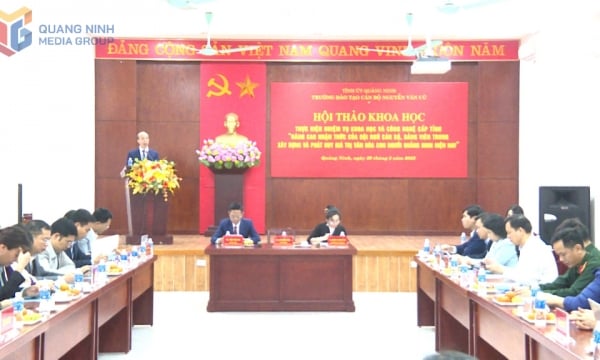









Comment (0)